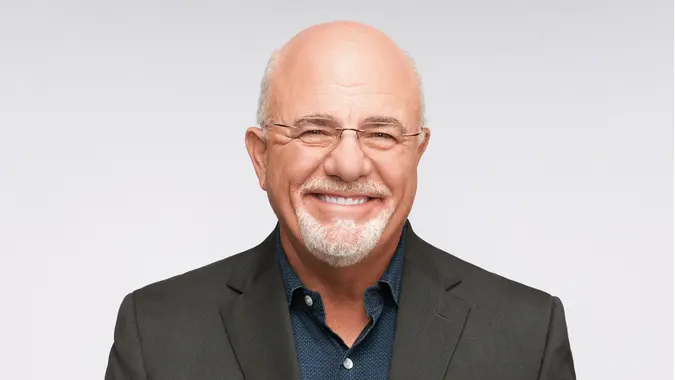Dave Ramsey: Should You Max Out Your 401(k)?

Commitment to Our Readers
GOBankingRates' editorial team is committed to bringing you unbiased reviews and information. We use data-driven methodologies to evaluate financial products and services - our reviews and ratings are not influenced by advertisers. You can read more about our editorial guidelines and our products and services review methodology.

20 Years
Helping You Live Richer

Reviewed
by Experts

Trusted by
Millions of Readers
If you plan to rely on your 401(k) during retirement, you might consider contributing the maximum annual amount, which is $23,000 or $30,500 (aged 50 and over) in 2024. Not only would this build your retirement fund more quickly, but you could also benefit from tax perks and employer matches. However, the drawback is less cash for other needs.
The financial expert, author and radio host Dave Ramsey cautions against maxing out your 401(k) account until you’ve carefully considered your entire financial picture and goals. In a Ramsey Solutions post, he offered some helpful advice on when you should and shouldn’t do it.
When You Should Consider Maxing Out Your 401(k)
Ramsey highlighted how the benefits of maxing out a 401(k) can be appealing. He gave three situations that can justify making the maximum contribution.
First, it can be a good idea when you have extra cash in your budget since you lack any debt payments. This also means you’ve paid off your mortgage, which will especially free up significant cash each month.
He then advised you to consider maxing out your 401(k) if you have a high income. In that case, the annual limit may be just a small portion of your earnings anyway. He mentioned that you could go even further and max out an individual retirement account as well if you can afford it.
Ramsey also said it can make sense if you’re currently behind on saving for retirement. By contributing the most cash possible, you can try to catch up so that you reach your savings target. During the process, he recommended considering extra income sources and lowering expenses if needed.
When You Should Think About Waiting
The financial expert’s philosophy is to address other important financial needs before prioritizing investing. This is especially important because your 401(k) money is designed to stay put until you’re 59½.
Since debt payments tie up your income and cost you interest, Ramsey suggested putting your extra cash toward debts before you consider maxing out your 401(k). He highlighted the debt snowball method, which is simple to use since you start with your smallest debt.
Next, he advised against maximizing contributions unless you already have a three-to-six-month emergency fund. Otherwise, you risk being tempted to make early 401(k) withdrawals for unexpected expenses. This would not only hurt your account’s earnings potential but also likely come with additional costs.
After tackling your debts and emergency fund, he recommended putting 15% of your earnings toward retirement. You’ll then want to consider whether you need to save money for other major purchases or goals, such as your children’s college fund, before you opt to maximize your 401(k) contributions.
Decide What’s Right for You
Since maxing out your 401(k) comes with pros and cons, it’s good to meet with a financial planner to decide on the right contribution strategy. This is also useful for learning about different types of investments and other retirement accounts that can supplement your 401(k).
 Written by
Written by  Edited by
Edited by 

























